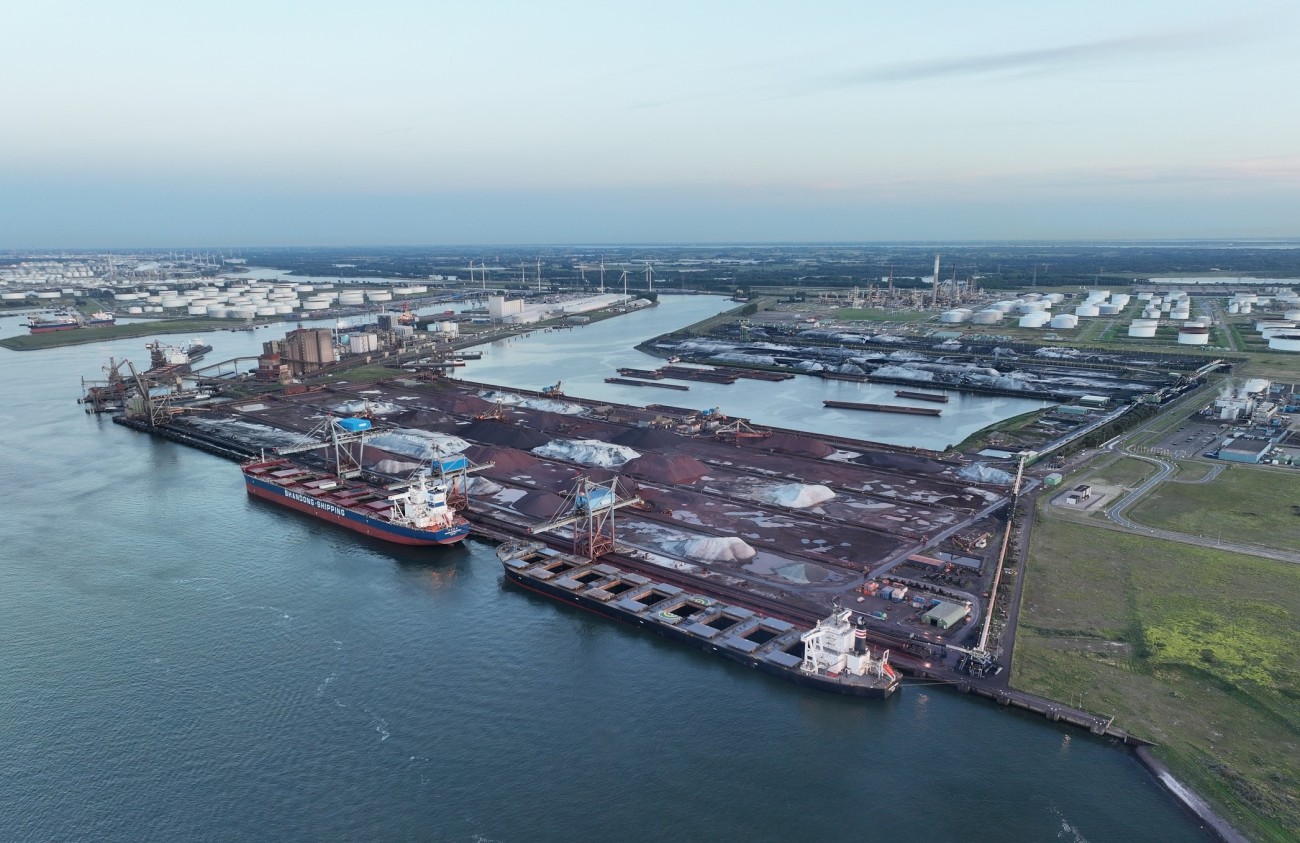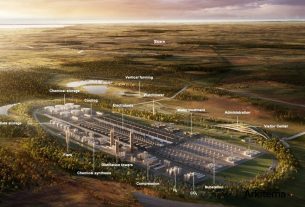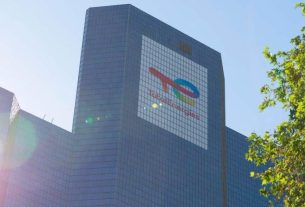The Netherlands – Thyssenkrupp Steel is investing in the upgrading of terminal operations at Ertsoslagbedrijf Europoort CV (EECV) in Rotterdam’s port. Tens of millions of euros will be invested.
A more modern unloading installation is being installed by ThyssenKrup in favor of an older one, guaranteeing increased productivity, safety, and environmental friendliness. In 2025, the brand-new installation is anticipated to go into service.
Iron ore and coal are transhipped to the EECV terminal in the port of Rotterdam for use in the Ruhr region’s steel manufacturing. A new unloading installation is taking the place of one of the sea cranes that is “old.” It will cost several tens of millions of euros to replace the tap. In the upcoming months, EECV will choose the new installation’s provider. Like its predecessor, the new crane is about 2,000 tons in weight, 60 meters high, 30 meters broad, and has a crane boom length of about 100 meters. EECV can unload up to 2,600 tons of iron ore per hour using these crane specifications.
Greener steel manufacturing
Beginning in 2027, the business will gradually stop transloading coal. As part of its efforts to green steel production, Thyssenkrupp Steel and the Port of Rotterdam began investigating the creation of a hydrogen supply chain last year. The German Federal Government and the State of North Rhine-Westphalia have received approval from Brussels to finance the decarbonization project tkH2Steel. For ThyssenKrupp, that is encouraging news. The business plans to develop a new direct reduction iron (DRI) steel mill near Duisburg.
Dry bulk
Since 1970, EECV has run the second largest dry bulk terminal in the Port of Rotterdam as well as one of the biggest and most advanced dry bulk terminals in Europe in the Europoort area. With each hoisting motion, the four unloading plants on the 1.1 kilometer long sea quay on the nearly 100 hectare terminal site dump 30 to 40 tons of iron ore and coal from the ships. Barges and barges cross the Rhine to Duisburg carrying the raw materials for the steel industry.




